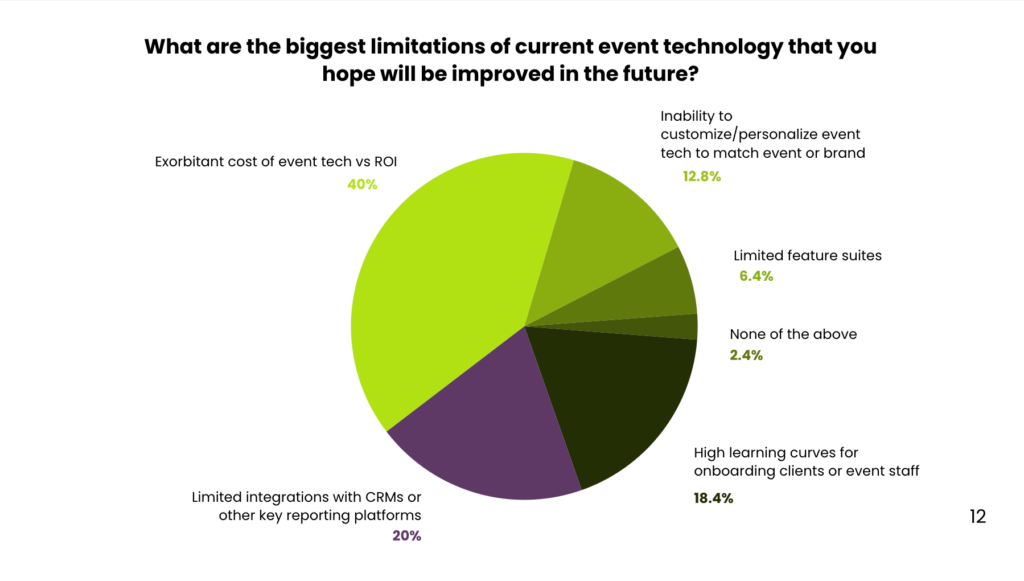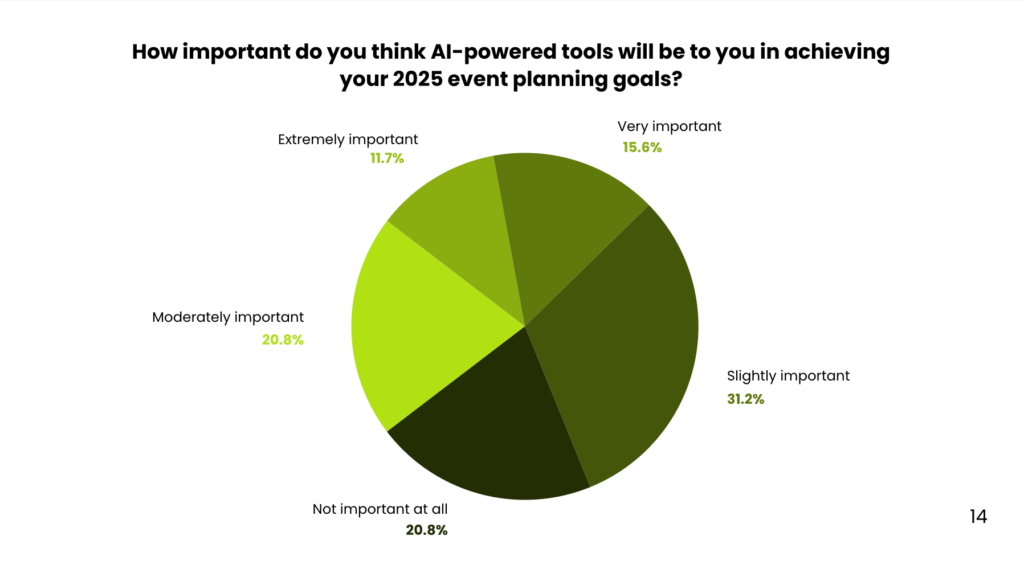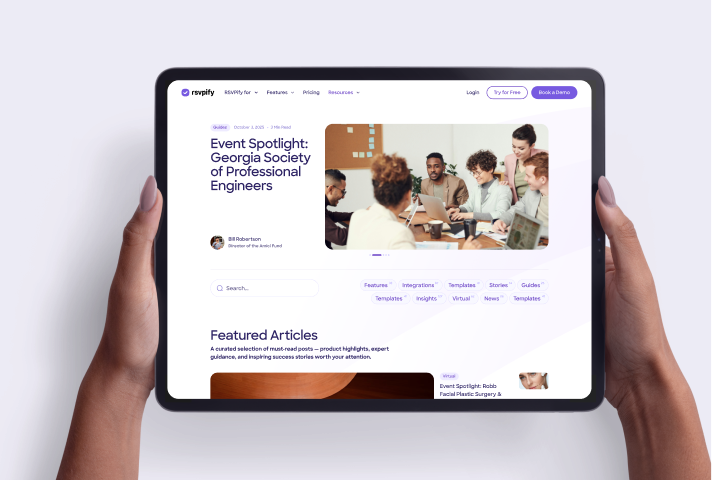Back to all posts
January 2, 2025

The world of event technology has seen remarkable advancements, yet many event planners continue to face significant challenges. According to responses from RSVPify and pc/nametag's Future of Events survey, hurdles such as high costs, limited integrations, and steep learning curves remain major concerns. As we approach 2025, event professionals are eager to see innovative solutions that address these issues while enhancing attendee experiences and streamlining operations.
Here's what event profs told us they are worried about and hoping for when it comes to using event tech in the coming year.
Despite the proliferation of event apps and platforms, planners encounter several critical obstacles that hinder the full potential of these tools:
Cost vs. Event ROI:
40% of planners cite the high cost of event technology as their biggest hurdle. Tight budgets and unclear ROI on expensive tools make it difficult to justify these investments.
Integration Limitations:
20% report frustrations with limited integrations between event tech, CRMs, and reporting tools. This lack of connectivity complicates data management and tracking event success.
Learning Curve:
18.4% highlight the challenge of onboarding clients and staff to complex tools. The need for user-friendly, easily adoptable solutions is evident.
Customization Issues:
12.8% feel current tech lacks sufficient customization options to align with specific event or brand requirements.
Feature Limitations:
6.4% express concerns about the limited feature suites of many tools, which fail to meet the versatile needs of modern events.

Survey respondents identified several key areas where event technology could evolve to better meet the needs of planners:
Better Collaboration and Networking Tools: Planners seek platforms that enhance attendee engagement and improve satisfaction rates.
Streamlined Registration Software: Simplifying the registration process remains a top priority. More intuitive systems can enhance the attendee experience and reduce friction.
Advanced Check-in Tools: With hybrid and in-person events continuing to rise, planners want more sophisticated tools to manage on-site and virtual check-ins efficiently.
Enhanced Ticketing and Payment Solutions: Offering secure and flexible payment options is essential for smoother attendee transactions.
Improved Venue and Vendor Management Tools: Finding and managing venues and vendors can be complex. Planners want tech that simplifies these workflows.
Integrated Social and Communication Features: Tools that keep attendees informed and engaged before, during, and after events are becoming increasingly important.
Looking to 2025, the integration of AI-powered tools is a key focus for event professionals. Opinions on the importance of AI in achieving event planning goals are varied:
11.7% consider AI tools extremely important.
15.6% view them as very important.
31.2% rate them as slightly important.
20.8% think they are moderately important.
20.8% believe AI tools are not important at all.
This data highlights the mixed perceptions around AI’s role in event technology. While some planners see its potential to improve efficiency and engagement, others remain cautious about its value.

As event technology continues to evolve, planners are eager to see advancements that address today’s pain points. Here are some open-ended questions and trends to monitor:
Will technology providers offer more flexible pricing models to align cost with value?
How can integration capabilities be enhanced to provide seamless workflows across platforms?
What innovations in user interface design will make tools more accessible for diverse teams?
Can AI-powered features deliver tangible benefits for event planning, or will they remain underutilized?
How will platforms adapt to the growing demand for hybrid and virtual event solutions?
By keeping these questions in mind, event professionals and tech developers can work together to create tools that are not only innovative but also practical and impactful.
About the Author
Adam Hausman co-founded RSVPify in 2013 and has been passionate about event tech and ticketing software ever since. Also founder of Greenlight Growth Marketing, he holds degrees from Indiana University (BA English/Psychology 2008) and the University of Illinois-Chicago (M.Ed. Secondary Education 2012). He lives in Maine with his wife, 2 kids, and 2 annoying cats.
Get the latest product updates, event planning tips, and industry insights — straight to your inbox.
You can unsubscribe at any time. Your email will only be used to send RSVPify updates and will never be shared.
